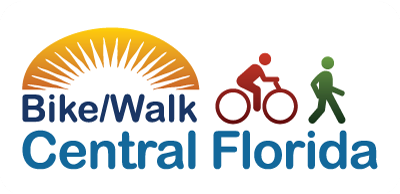One year ago today, on July 1, 2024, Florida made history. Governor Ron DeSantis signed HB 1133, the Vulnerable Road User Act, into law after nearly a decade of determined advocacy. For organizations like Bike/Walk Central Florida (BWCF) and our partners across the state, it was a hard-won victory and a vital step toward safer streets for all Floridians.
A Law Born from Tragedy and Tenacity
The movement for this law began nearly ten years ago, following a tragic cycling crash in Southwest Florida that exposed a troubling reality: when a driver causes a serious injury or the death of a person biking or walking, the penalties can be shockingly minimal. In that case, the driver responsible received only a $1,000 fine, a twelve-month license suspension, and required medical clearance to drive, no long-term accountability.
This outcome sparked outrage among road safety advocates and launched a statewide push for reform. As reported in a News-Press article from 2015, the push for stronger legal protections began nearly a decade ago when three dedicated advocates came together to draft the original version of the bill. Over the years, organizations like the Florida Bicycle Association and BikeLaw played key roles in supporting the legislation and helping guide it through the long road to passage.
What HB 1133 Accomplished
Today, HB 1133 stands as a landmark law in Florida’s commitment to protecting vulnerable road users: people walking, biking, rolling, riding motorcycles or scooters, using wheelchairs, or working on our roads.

Key provisions include:
- If a driver causes serious bodily injury:
- $1,500 minimum fine
- 90-day driver’s license suspension
- Mandatory completion of a vulnerable road user safety course
- If a driver causes a fatality:
- $5,000 minimum fine
- One-year license suspension
- Same educational requirement
These provisions are designed to create a culture of accountability and awareness on Florida’s roads. For those interested in a deeper dive, the full analysis is available, offering further context on the bill’s background, intent, and enforcement details.
Signs of Progress One Year In
In the year since its implementation, law enforcement and advocacy organizations have hailed the law as a meaningful advance in traffic safety. The Florida Sheriffs Association has noted that, “The bill will help protect vulnerable road users from injury or death by drivers on the road by establishing high fines, license revocation and requiring driver improvement courses to be completed for any violations.”
While we’re still waiting for statewide data to fully evaluate its long-term impact, one thing is already clear: awareness is growing. Drivers are hearing more about their responsibilities, and there’s a stronger cultural expectation for sharing the road safely.
BWCF’s Role Then and Now
At Bike/Walk Central Florida, we’ve stood alongside our partners on this journey, from advocating to educating our communities through programs like Best Foot Forward. Our goal has always been to ensure that the most vulnerable people on our streets, children, seniors, essential workers, and people using active transportation, are seen, valued, and protected.
HB 1133 was a breakthrough. But it’s not the finish line.
The Road Ahead
Florida remains one of the most dangerous states for people walking and biking. HB 1133 gives us new tools to shift that reality, but true safety requires continued action: better infrastructure, smarter enforcement, community education, and a transportation culture that prioritizes people over speed.
As we mark one year of this vital law, we celebrate progress and renew our commitment to the work still ahead. Because everyone deserves to get home safely.
Support Bike/Walk Central Florida’s mission for a SAFER Central Florida by donating, volunteering, or spreading the word about HB 1133 and the rights of vulnerable road users. Together, we can create streets where safety is the standard, not the exception.

